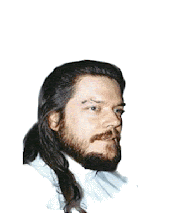A message from Dr. Robert Mentzer, the Dean of Wayne State's School of Medicine. I don't always see eye-to-eye with my Dean--in fact, more often than not, I don't. But this missive is eloquent, and, I think, right on the money. I reproduce it in its entirety.
Dear Colleagues,(Emphasis added.)
During the month of June, the atmosphere at the School of Medicine is always highly-charged and filled with excitement. There is good reason for this - it is the time when the most recent class of Wayne State medical students graduates. Graduation provides tangible evidence of academic success to both students and faculty and validates that the hard work invested by both was worth it. Our 247 medical and doctoral graduates now embark on the next step of their training in the pursuit of the knowledge that will help them further develop their scientific proficiency while applying their knowledge to the clinical practice of medicine.
The pursuit of excellence in medicine is a noble one. It is important to understand that the road to excellence is not always smooth or straight. There will be conflicts and frustrations imposed by the business imperatives that drive other parts of the healthcare system. As physicians, we must navigate through the potholes and curves associated with such restrictions.
For example, there are politicians and business people who would suggest that the academic model of healthcare which has served the people of our city, our state and our nation so well is outdated. A university-based healthcare model emphasizes translation of education and research into new levels of clinical excellence at the bedside. The newer business models embraced by these advocates would sever the connection between these three inter-related elements of medical science.
There are unintended consequences associated with such a strategy.
According to Rob Norton in the The Concise Encyclopedia of Economics, the law of unintended consequences is that the actions of people -- and especially of government -- always have effects that are unanticipated or "unintended." Norton goes on to say that economists and other scientists have heeded its power for centuries; for just as long, politicians and popular opinion have largely ignored it.
Said another way by Dubner and Levitt in the NY Times Magazine in January of this year, the law of unintended consequences is what happens when a simple system tries to regulate a complex system. A political system can be simple, and operate with limited information, short time horizons, low feedback, and poor and misaligned incentives. Society, in contrast, is a complex, evolving, high-feedback, incentive-driven system. When a simple system tries to regulate a complex system, there are often unintended consequences.
The law of unintended consequences is at work in the promotion of bio-fuels, especially methanol, as alternative fuel sources. Methanol is derived from corn and water. Because of the strong political push to reduce our dependence on foreign oil, agricultural incentives have been created to sell corn to bio-fuel producers. This increased demand has driven the price of corn higher. The higher corn prices have disadvantaged the food industry and farmers who rely upon corn as feed for livestock. Consequently, food prices are increasing and are likely to continue to rise.
The same sort of myopic thinking is occurring in our state relative to the academic model of healthcare. Dismantling the parts of our university-based model could have unintended consequences for both the quality of healthcare and its availability to people who have few options. It is a course that could change the focus of medicine away from our mission to one driven by deals and dollars. As healthcare organizations, insurance companies and politicians assume greater control over the direction of patient treatment and protocols, the role of the physician as the primary safeguard of care is diminishing. There seems to be a sense that more effort and better care yield less expensive care. The evidence would suggest otherwise. And the stakes are too high to casually turn away from the issues. Politicians are insulated from the outcomes of poor decisions. Physicians have no such luxury.
The oath physicians take at the outset of their careers means that the patient, regardless of ability to pay, regardless of social standing and regardless of age or the extent of disability must receive the same sort of care as others who are more advantaged. At times, this puts physicians in direct conflict with those who wish to make patient care decisions based upon politics or economics. In truth, physicians are the conscience of our system of healthcare. Physicians, not administrators, must make treatment decisions.
Physicians are biomedical scientists with the unique and special gift of using science to help those with disabling illnesses return to productive lives and to alleviate the pain and suffering associated with disease or trauma. It is a special gift and a tremendous responsibility. Meeting this responsibility requires pursuit of excellence on a road that is filled by a vortex of humanity--human needs and human decisions that are often decidedly unscientific.
It is this that makes the challenge of practicing medicine so interesting and so unique. As fascinating as pure biomedical science can be, science without humanity serves no productive purpose.

No comments:
Post a Comment